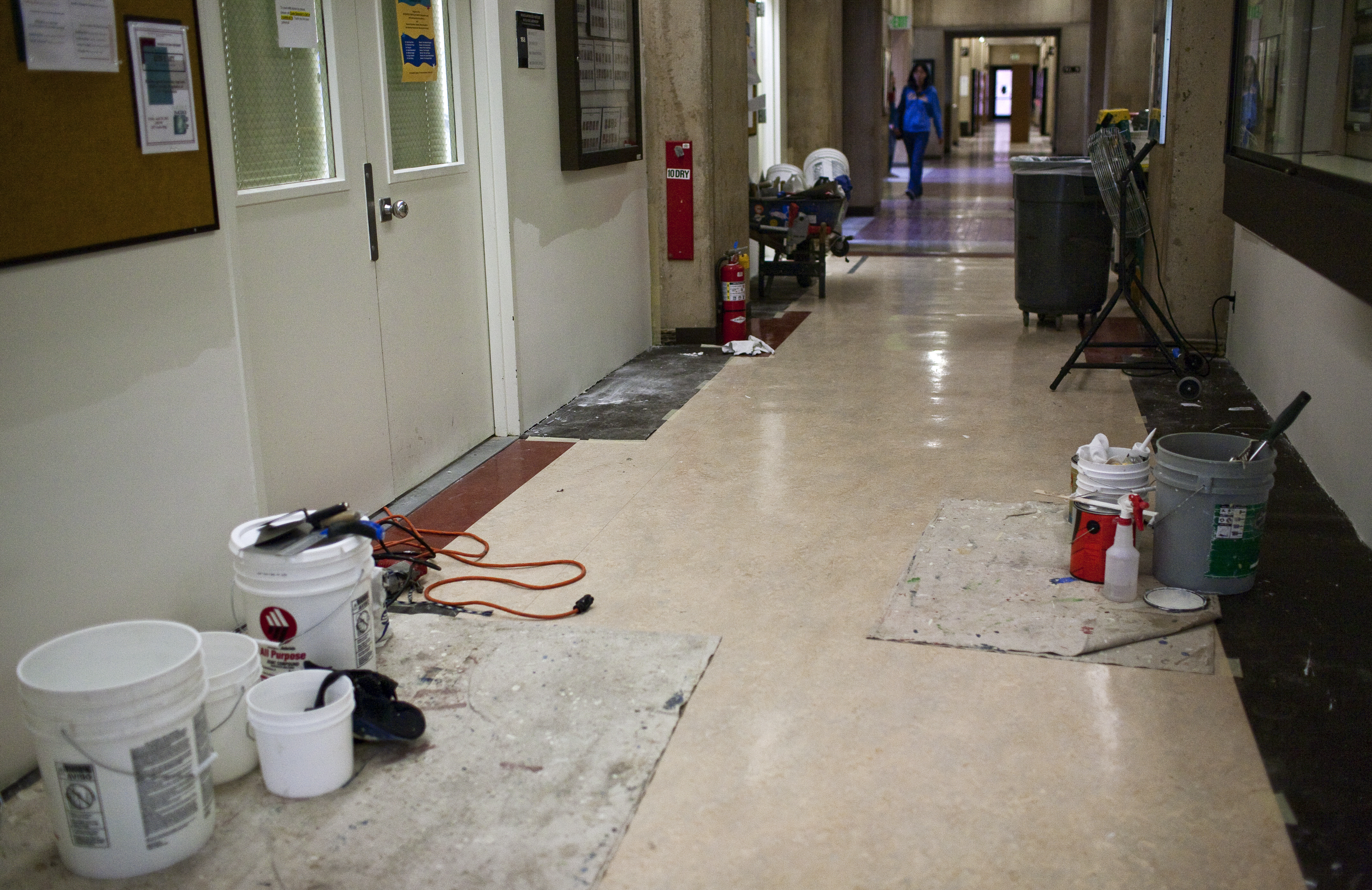University facility staff has completed about half of the work required to restore campus buildings damaged in a water main break on South Campus last week.
Staff workers are currently removing the last of the damaged and wet materials ““ including drywall and cabinets ““ from Boyer Hall, the Biomedical Sciences Research Building and the Molecular Sciences Building, said Steve Ritea, a university spokesman.
The basement and first floors of these buildings were partially flooded early morning last Tuesday after an underground water main ruptured near the Court of Sciences Student Center.
Nearly half of the rehabilitation work on these buildings is also complete, which includes restoring walls and putting carpeting back in the rooms affected, Ritea said. Thirty-five rooms and some hallway space suffered damage as a result of the main break, he said.
Administrators are still in the process of assessing the cost of the damage, and they do not have a cost estimate as of now, Ritea said.
Seminar Room 154 in the Biomedical Sciences Research Building is one of six rooms that were unusable after the flood.
Crews have been working on the room, ripping out small walls and decontaminating, but Rand La Belle, the building’s supervisor, said he anticipated it would be completely restored by Wednesday night.
La Belle said facility staff were on the job quickly and have been working since to repair the damage.
To repair the damage, crews have been working around the schedules of the people in labs and offices affected by the flooding, Ritea said.
“Most people are able to go their work during the day, and then crews go in on off-hours,” he said.
The university expects most of the clean-up process to be done in the next three to four weeks, but it could be another six to eight weeks until everything is finalized, Ritea said. Reinstalling carpet that was damaged by the flood can take longer than the other repair work needed, he said.
Sitting in a conference room down the hallway from her regular office in Boyer Hall, Bo Tendis, an administrative officer for the Molecular Biology Institute, worked on her laptop Wednesday afternoon.
The main molecular biology administrative offices were particularly affected by the flood, Tendis said. The conference room has been her temporary office since ““ but not without some costs. Groups who normally use the conference space have been displaced while the room doubles as an administrative office, she said.
“It’s been a big adjustment. … It’s hard working on a laptop instead of my (computer),” Tendis said. “But it could have been a lot worse.”
Research, however, has not largely been affected in Boyer Hall because most labs are located on higher floors, where the flood did not reach, Tendis said.
Ritea said all costly equipment was also safely removed from those labs that were affected.
Contributing reports by Fiona Kirby, Bruin contributor.
